TGF-β uncouples glycolysis and inflammation in macrophages and controls survival during sepsis
- PMID: 37552767
- PMCID: PMC11145950
- DOI: 10.1126/scisignal.ade0385
TGF-β uncouples glycolysis and inflammation in macrophages and controls survival during sepsis
Abstract
Changes in metabolism of macrophages are required to sustain macrophage activation in response to different stimuli. We showed that the cytokine TGF-β (transforming growth factor-β) regulates glycolysis in macrophages independently of inflammatory cytokine production and affects survival in mouse models of sepsis. During macrophage activation, TGF-β increased the expression and activity of the glycolytic enzyme PFKL (phosphofructokinase-1 liver type) and promoted glycolysis but suppressed the production of proinflammatory cytokines. The increase in glycolysis was mediated by an mTOR-c-MYC-dependent pathway, whereas the inhibition of cytokine production was due to activation of the transcriptional coactivator SMAD3 and suppression of the activity of the proinflammatory transcription factors AP-1, NF-κB, and STAT1. In mice with LPS-induced endotoxemia and experimentally induced sepsis, the TGF-β-induced enhancement in macrophage glycolysis led to decreased survival, which was associated with increased blood coagulation. Analysis of septic patient cohorts revealed that the expression of PFKL, TGFBRI (which encodes a TGF-β receptor), and F13A1 (which encodes a coagulation factor) in myeloid cells positively correlated with COVID-19 disease. Thus, these results suggest that TGF-β is a critical regulator of macrophage metabolism and could be a therapeutic target in patients with sepsis.
Conflict of interest statement
Competing Interests
The authors declare that they have no competing interests.
Figures
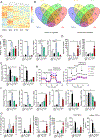
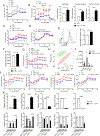
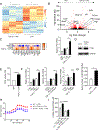
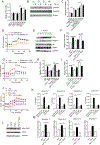
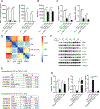
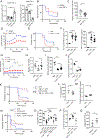

References
Publication types
MeSH terms
Substances
Grants and funding
LinkOut - more resources
Full Text Sources
Medical
Molecular Biology Databases
Research Materials
Miscellaneous

